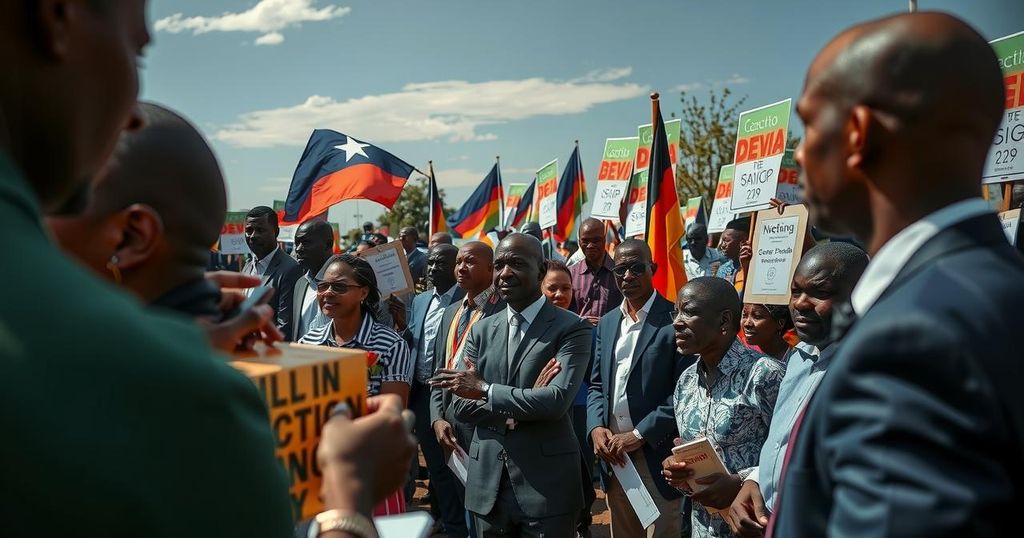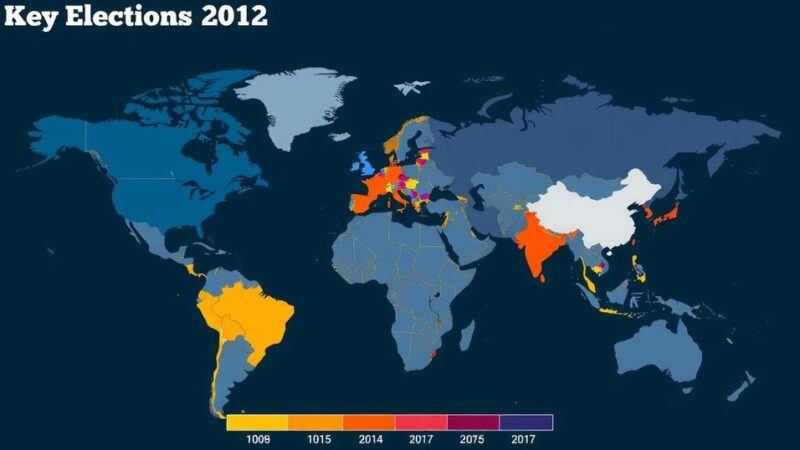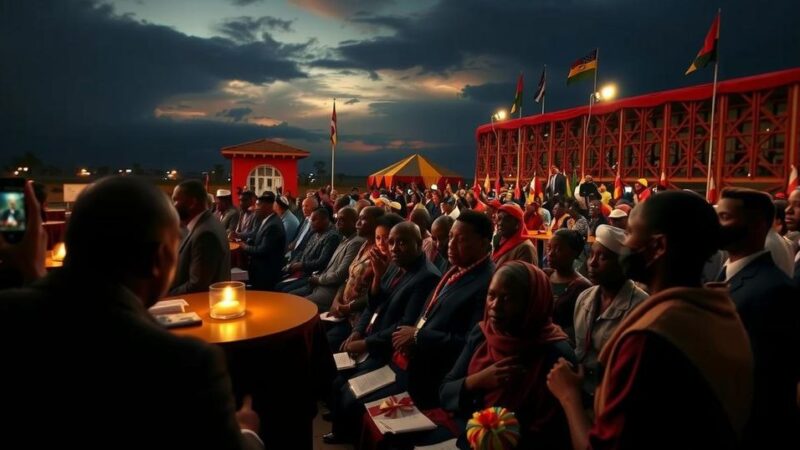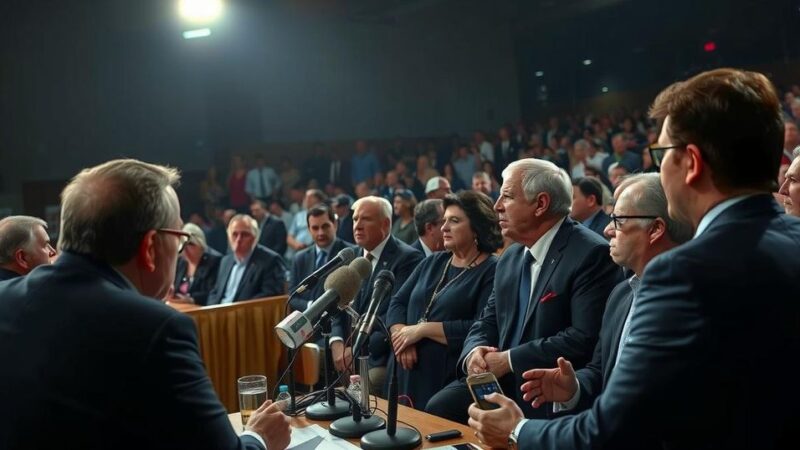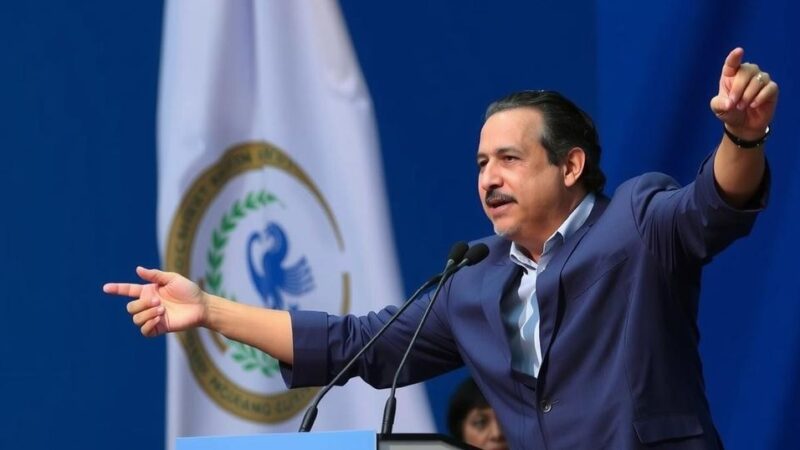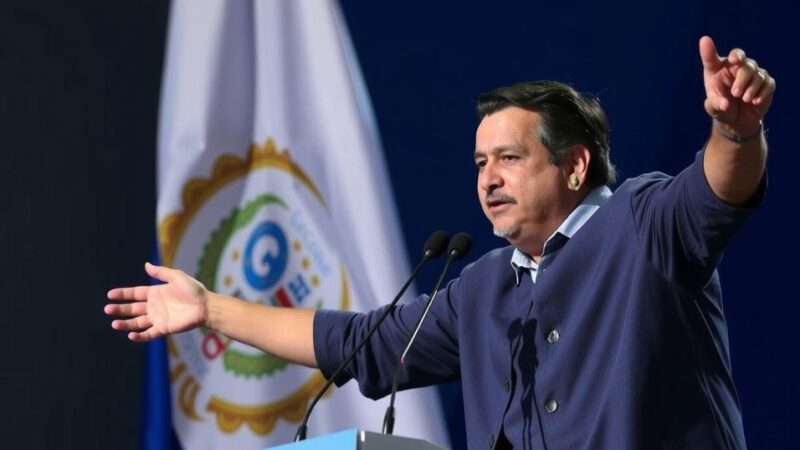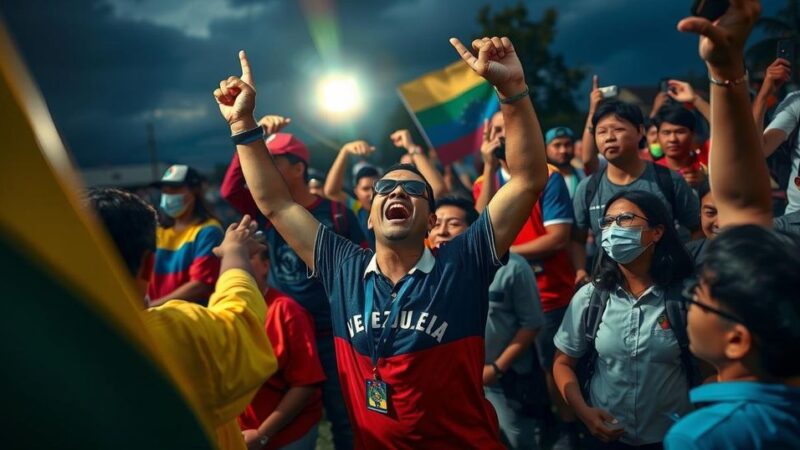Namibia’s elections on November 27, 2024, mark a significant test for the ruling SWAPO party, amidst rising discontent and a competitive political atmosphere. Key candidates include Vice President Netumbo Nandi-Ndaitwah, who is vying to become the nation’s first female president, and former SWAPO member Panduleni Itula, who gains traction among the youth. Addressing critical issues such as economic inequality, unemployment, and corruption will be vital as the electorate prepares for what could be a defining election in Namibia’s democratic journey.
In the upcoming 2024 elections, Namibia will confront a politically charged atmosphere as it approaches presidential and parliamentary elections marked by a heightened sense of competition. The elections on November 27 will be pivotal, following significant political shifts observed in Southern Africa, where longstanding ruling parties have faced electoral challenges. Notably, the ruling SWAPO party has governed since Namibia’s independence in 1990 but is witnessing a decline in voter support amid significant dissatisfaction, particularly among the youth. Many candidates, including Vice President Netumbo Nandi-Ndaitwah, Panduleni Itula, McHenry Venaani, Bernadus Swartbooi, and Job Amupanda, present various platforms tailored to address pressing national concerns such as inequality, unemployment, corruption, and housing crises.
As the nation readies for its seventh election since gaining independence, there exists a palpable sense of urgency for change among the electorate, spurred by issues deeply rooted in Namibia’s socio-economic landscape. Approximately 1.45 million individuals are eligible to vote, with various political parties vying for influence in parliament. The electoral framework necessitates that a presidential candidate secure over 50 percent of the vote, compelling candidates to create effective strategies to attract a diverse voter base. The political arena in Namibia is further complicated by the lack of unity among opposition parties, which may allow the ruling party to retain its influence despite growing discontent.
In this election, critical issues such as the economic divide, rising youth unemployment, entrenched corruption, and land reform are at the forefront of voters’ minds. Despite the existing structural challenges, candidates have pledged to address these matters with proposals that propose significant reforms including job creation initiatives and housing solutions. Overall, these elections represent a potential turning point for Namibia as it faces the prospect of a new political era underlining the need for substantive democratic engagement.
Namibia, a Southern African nation, has been governed by the SWAPO party since its independence from apartheid South Africa in 1990. The political landscape is now evolving, mirroring broader electoral dynamics in the region where liberation movements are encountering challenges to their long-held power. The current electoral cycle has gained prominence as opposition parties mobilize against SWAPO in light of growing dissatisfaction with governance. Factors contributing to this shift include economic disparity, high unemployment rates, and public corruption scandals that have severely undermined the governing party’s reputation. With a population of approximately 3 million, the stakes are high as a newly engaged youth electorate may transform both the presidential and parliamentary outcomes in these elections.
The 2024 Namibian elections stand as a critical juncture for the nation, as mounting dissatisfaction with the SWAPO party may pave the way for significant political change. With various candidates aiming to address urgent socio-economic challenges, the outcome of this election could reshape governance in Namibia. The potential for a youthful voter base to influence the results adds an additional layer of complexity to the electoral dynamics. As the electorate prepares to cast their votes, the emphasis remains on whether discontent will translate into tangible political shifts, challenging the status quo in this historically significant election.
Original Source: www.aljazeera.com
